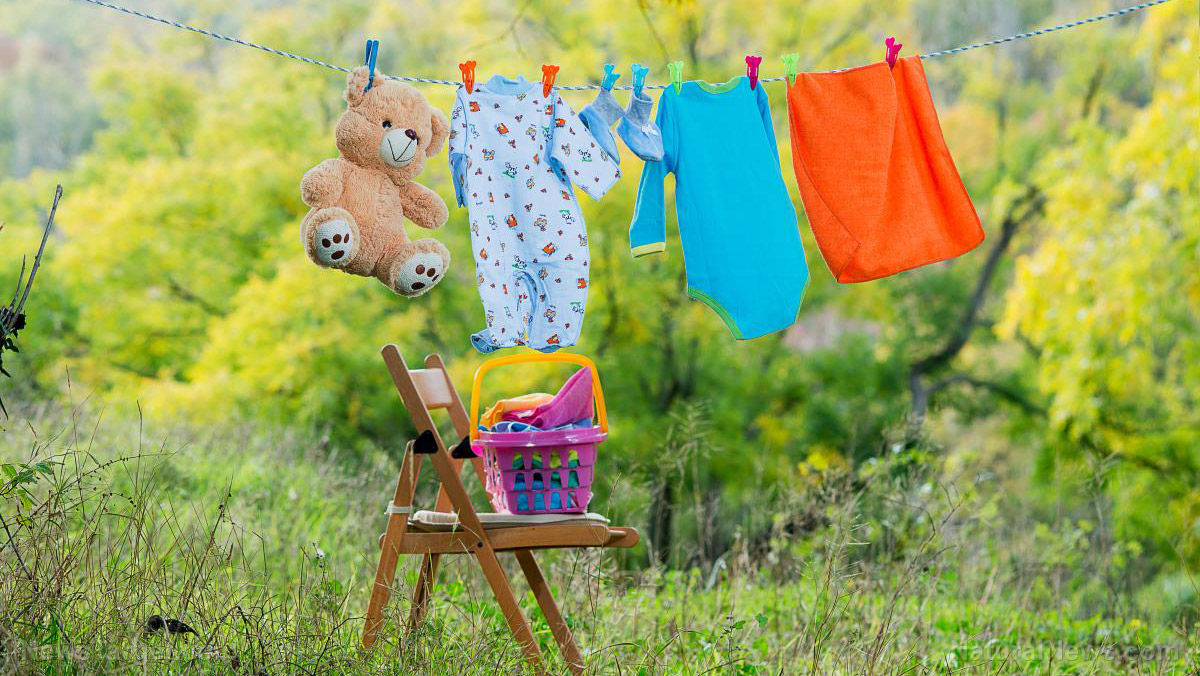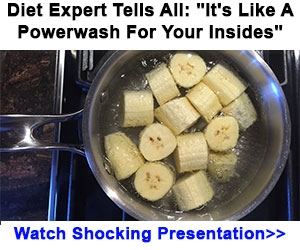How to make your own laundry soap
Tuesday, July 10, 2018 by: Zoey Sky
Tags: DIY, DIY laundry detergent, DIY laundry soap, harmful chemicals, homemade laundry detergent, homemade laundry soap, how to, laundry detergent, laundry soap, natural cleaning products, non-toxic laundry detergent, non-toxic laundry soap, off grid, preparedness, preparedness and survival, prepper, prepping, recipes, self-reliance, SHTF, soap,survival, survival skills, survivalist, toxic chemicals, toxins
Tags: DIY, DIY laundry detergent, DIY laundry soap, harmful chemicals, homemade laundry detergent, homemade laundry soap, how to, laundry detergent, laundry soap, natural cleaning products, non-toxic laundry detergent, non-toxic laundry soap, off grid, preparedness, preparedness and survival, prepper, prepping, recipes, self-reliance, SHTF, soap,survival, survival skills, survivalist, toxic chemicals, toxins
3,240VIEWS

(Natural News) Unlike store-bought laundry detergent, DIY laundry soap doesn’t use toxic chemicals to clean your clothes.
When SHTF, you’ll benefit from knowing how to make your own laundry soap. Even when things are relatively calm, you can make DIY laundry soap to save money on cleaning products. You can make homemade laundry soap in either solid powder form or liquid form. Both can be effectively used to clean clothing. (h/t to SurvivalSullivan.com)
The actual amount may vary depending on the prices of the ingredients in your area, but you can make about 20 gallons of homemade laundry soap for only $10.
Here are some basics to keep in mind if you decide to start using DIY laundry soap:
- Both liquid and powdered laundry soaps are extremely shelf stable. When stored properly, a bottle of liquid homemade laundry soap can be used even after seven months. Meanwhile, powdered DIY laundry soap in an airtight container will keep for a long time.
- Like a lot of other homemade bar and liquid soaps, DIY laundry soap is low-sudsing. It’s normal not to see that many bubbles when you’re washing clothes, and this doesn’t mean that the soap isn’t working.
- Skip the essential oils if you’re using DIY laundry soap for baby or pet clothes. Ingredients like essentials oils can be too harsh on sensitive skin.
- To avoid a build up in your septic system or an energy-efficient washer, add a couple of tablespoons of Epsom salt when doing a load of laundry. Use liquid laundry soap instead of the powdered DIY laundry soap recipes.
- When doing a large load of laundry, two tablespoons is usually the recommended amount of homemade laundry soap to use per large load (this applies to both powdered and liquid laundry soap).
- You can use distilled white vinegar as a natural fabric softener (it won’t make your laundry smell like vinegar). Just don’t add vinegar to your washer if you’re using homemade laundry soap that has baking soda, Castile soap, or super washing soda. Combining vinegar with any of these other ingredients might ruin a load of laundry.
- You can use most DIY laundry soap recipes if you have a high-efficiency (HE) washers. However, these front-loading modern washers might clog up if you use powdered homemade laundry soap. (Related: Safe Alternative to Toxic Laundry Detergent.)
DIY laundry soap ingredients and recipes
The DIY laundry soap recipes included below share several ingredients. Adjust the amounts you use depending on how they work in your washer, your laundry, or for personal preference.
Sponsored solution from CWC Labs: This heavy metals test kit allows you to test almost anything for 20+ heavy metals and nutritive minerals, including lead, mercury, arsenic, cadmium, aluminum and more. You can test your own hair, vitamins, well water, garden soil, superfoods, pet hair, beverages and other samples (no blood or urine). ISO accredited laboratory using ICP-MS (mass spec) analysis with parts per billion sensitivity. Learn more here.
While you can use whatever kind of soap when making laundry detergent, some brands are better than others when it comes to removing stains and making clothes smell fresh. The effectiveness of DIY laundry soap can also be affected by water quality.
One bar of soap usually weighs at least four to four and a half ounces. The DIY laundry soap recipes below require a bar of soap that weighs at least four ounces to work. When using a large bar of soap, adjust the amount you grate, so you don’t end up with some gummy soap.
Here are three recommended soaps for the recipes below:
- Castile – An olive-oil based soap from Spain, Castile is often used to make laundry soap, dish soap, and liquid hand soap. It is good at removing both dirt and stains from clothing. Since Castile is vegetable fat-based, it has a low chance of clogging up your washer or your septic system.
- Fels Naptha – Unlike Castile, Fels Naptha is usually more readily available. It’s cheaper, and it doesn’t have any added perfumes. Fels Naptha is highly concentrated so it can last a long time, and it is gentle on sensitive skin.
- Ivory – Ivory is another affordable brand that you can use to make homemade laundry soap.
DIY laundry soap recipe (makes a large batch)
Ingredients and supplies:
- 1 bar of soap
- 2 cups of Borax
- 2 cups of washing soda
- Water
- A five-gallon bucket
Steps:
- Cut the soap into chunks and grate it with a cheese grater or the serrated edge of a butter knife into fine pieces.
- Heat two quarts of water in a large pot.
- Pour the grated soap into the pot and constantly stir until the soap dissolves completely.
- Remove the pot from the stove.
- Pour four and a half gallons of warm water into the bucket. Stir in both the washing soda and the Borax. Stir until the particles in the mixture are fully dissolved.
- Add the soap mixture to the bucket.
You’ll need at least ½ and one full cup of the laundry soap per load, depending on how dirty the clothing is and how heavy the load is.
You can also make scented DIY laundry soap by adding several caps of your chosen essential oils or some lemon juice into the washer together with the soap.
Use this recipe to make gentle and non-toxic laundry soap.
All-natural bleach alternative
Use this recipe to make non-toxic bleach (yields one gallon):
Ingredients:
- 1 1/2 cups of three percent hydrogen peroxide
- 1/2 cup lemon juice
- 12 cups filtered water
- one-gallon bottle
Steps:
Mix all the ingredients in a one-gallon bottle. You can use the bleach to clean, disinfect, and whiten laundry.
Read DIY guides for safer alternatives to laundry soap and other cleaning products atChemicals.news.
Sources include:

No comments:
Post a Comment